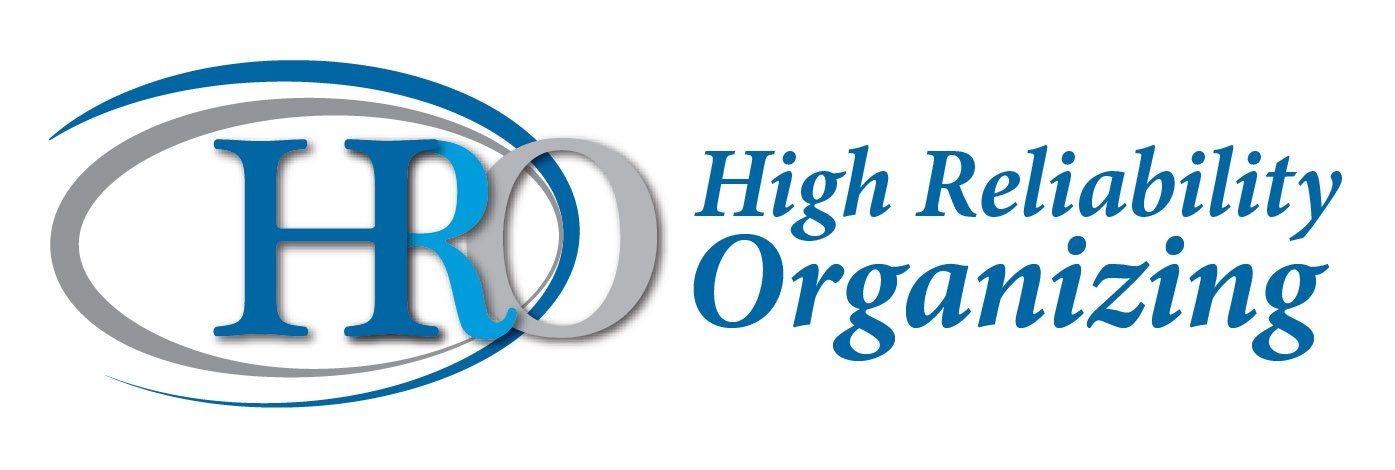Models of HRO
Click on the names below to view an HRO Model.
Weick and Sutcliffe/Social Psychology
Managing the Unexpected through Mindfulness
Weick, as a social psychologist, initially studied the effect of cognitive dissonance on performance. He subsequently studied the flow of action following surprise, enactment, sense making of the unexpected, and mindfulness. As a social psychologist he contributed the concept of collective mindfulness and collective enactment. Managing the Unexpected (Weick & Sutcliffe, 2007), then, views HRO through the lens of the effect people have on other people’s behaviors. It is not simply mindfulness or enactment they describe but collective mindfulness and collective enactment.
Mindfulness is a mental orientation that continually evaluates the environment as opposed to mindlessness where a simple assessment leads to choosing a plan that is continued until the plan runs its course. Mindfulness track small failures, resists oversimplification, remains sensitive to the operations in practice, maintains the capability for resilience, and takes advantage of changes in who has expertise.
Enactment (Weick, 1988) happens when the individual engages the circumstances and environment creating a new situation and environment. This can be a constraining action if it limits the ability of the person to think or it can expand the possibilities of solutions. Enacting involves shaping the world which can be a self-fulfilling prophecy; by engaging the problem you change the problem and your perception of the problem.
Weick and Sutcliffe studied diverse organizations that must maintain structure and function in uncertainty where the potential for error and disaster can lead to catastrophe. They found that not only do HROs have a unique structure but that HROs think and act differently from other organizations. HROs use mindful organizing for the unexpected as well as the expected.
Expectations, as in repetition, can develop into blind spots where unexpected events can develop and become unmanageable. Mindful organizing helps the organization maintain resilience during such events through anticipation and containment.
Anticipation is more than sensing early events as it also includes the efforts to stop the development of undesirable events. Because we cannot anticipate all events we have containment practices for those unanticipated or unexpected events that occur. Containment directs activities toward events after an unexpected event has occurred while anticipation directs activities toward events before the unexpected event can occur.
Anticipation has three elements:
1) Preoccupation with failure: To avoid failure we must look for it and be sensitive to early signs of failure.
2) Reluctance to simplify: Labels and clichés can stop one from looking further into the events.
3) Sensitivity to operations: Systems are not static and linear but rather dynamic and nonlinear in nature. As a result it becomes difficult to know how one area of the organization’s operations will act compared to another part.
Containment has two elements:
4) Commitment to resilience: The organization must maintain function during high demand events. Resilience has three components:
i. Absorb strain and preserve function despite adversity
ii. Maintain the ability to return to service from untoward events
iii. Learn and grow from previous episodes.
5) Deference to expertise: This includes deference downward to lower ranking members of the organization. Expertise defers from the expert from its relational knowledge with greater emphasis on an assembly of knowledge, experience, learning, and intuition. Credibility, a necessary component of expertise, is the mutual recognition of skill levels and legitimacy.
Weick K, Sutcliffe K. 2007. Managing the unexpected: Resilient performance in an age of uncertainty. San Francisco, CA: Jossey Bass.
Weick K. 1988. Enacted sense making in crisis situations. Journal of Management Studies 25(4):305-317

